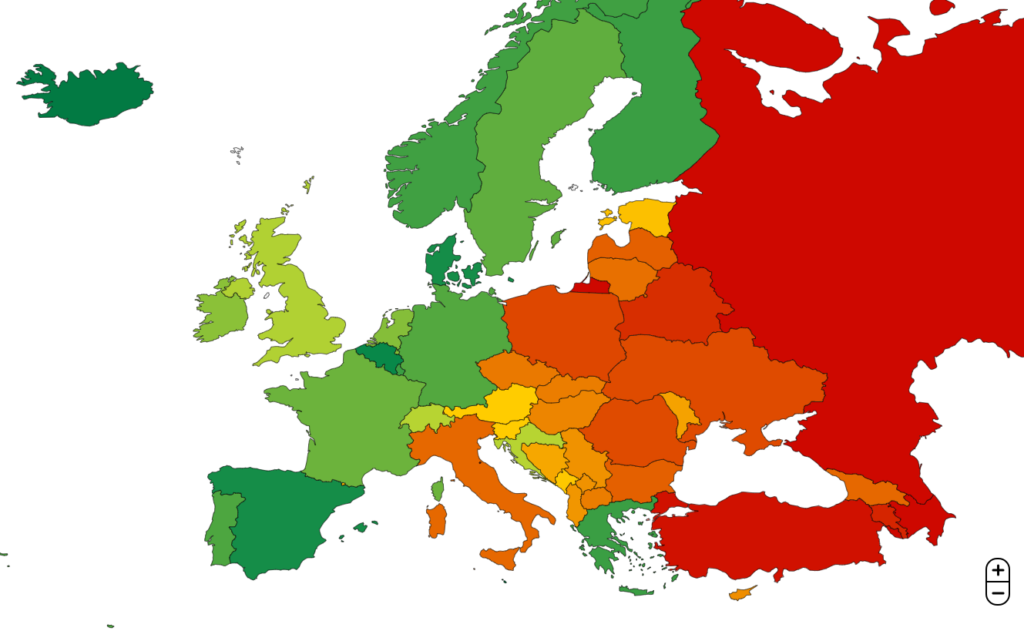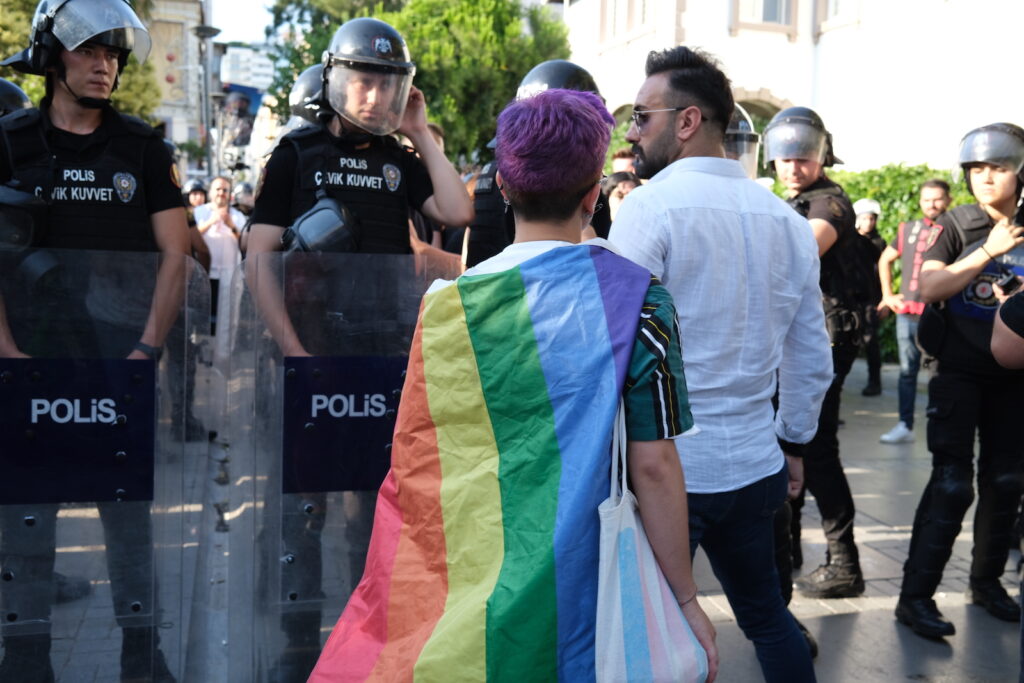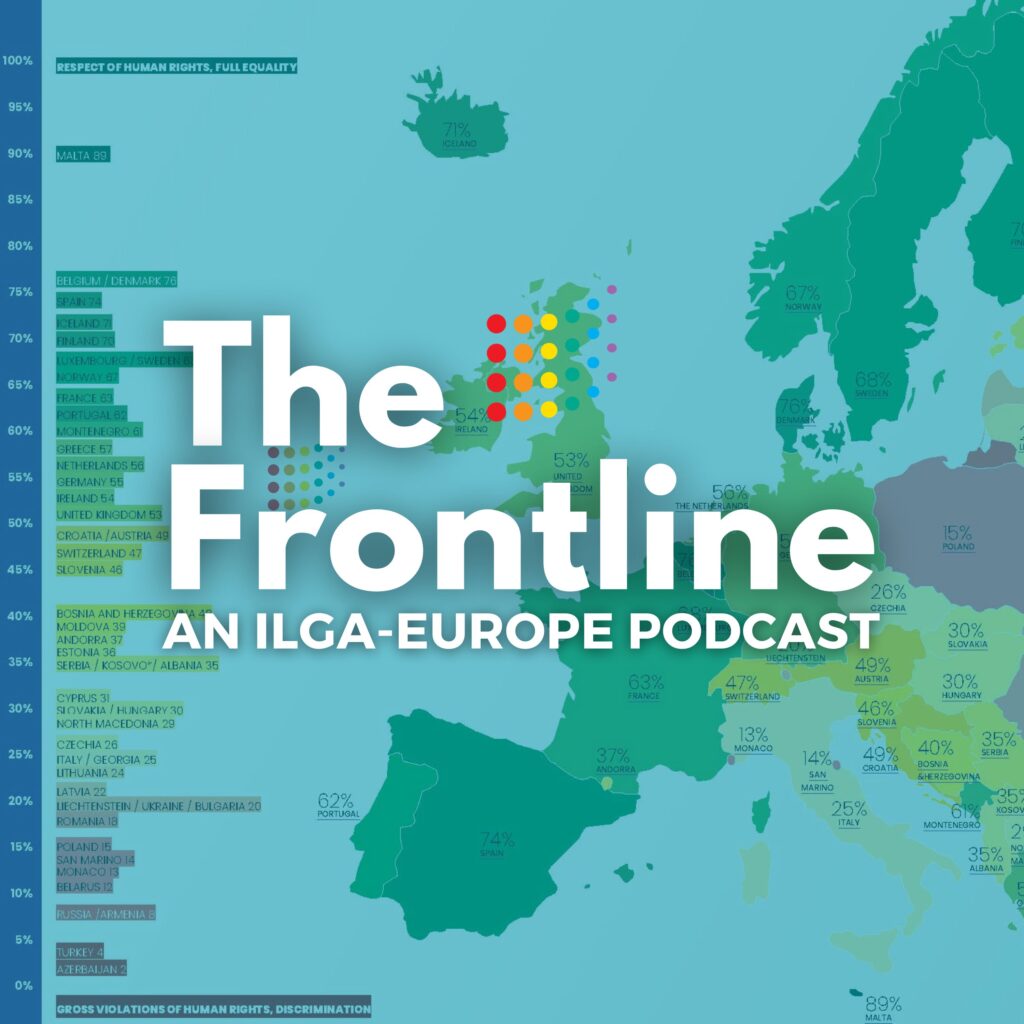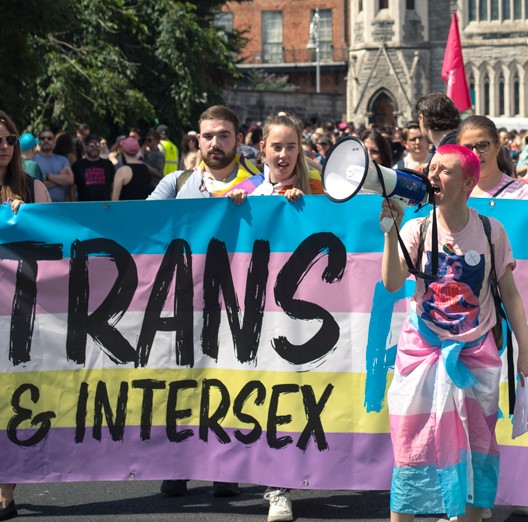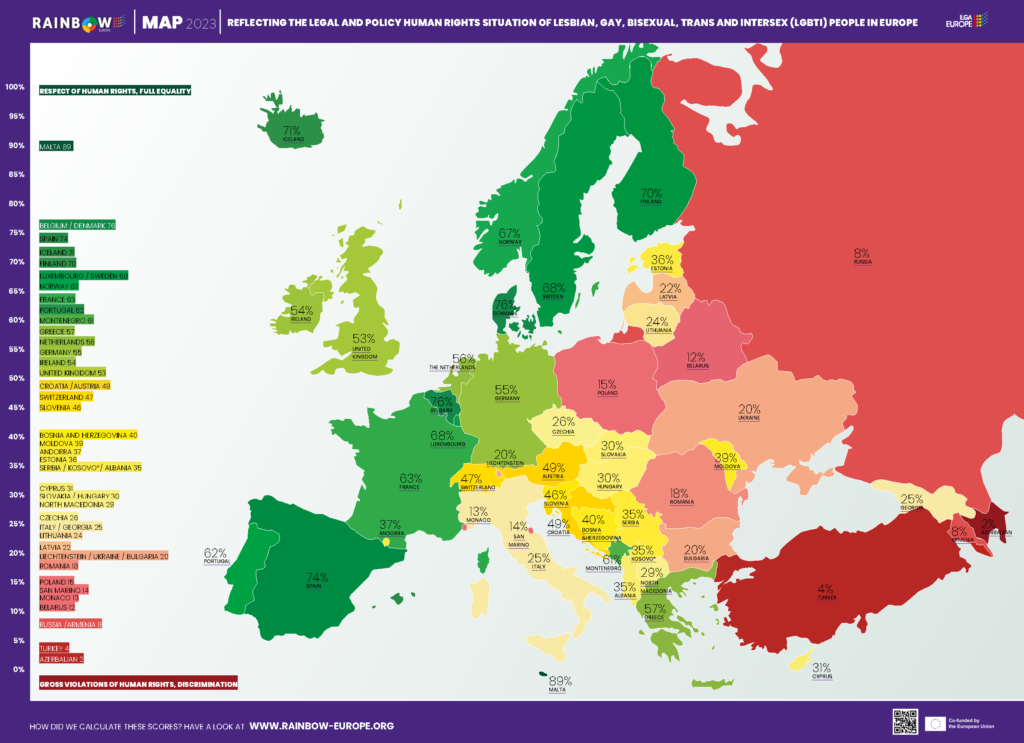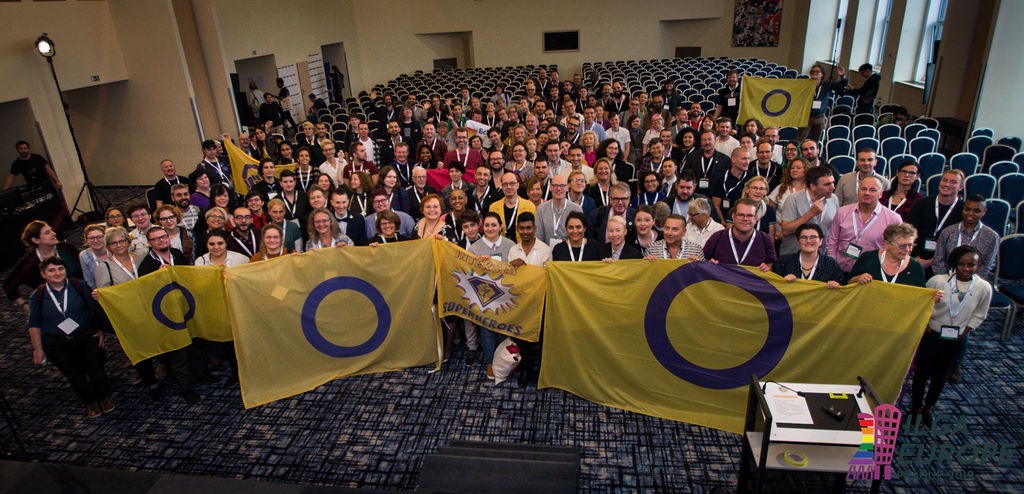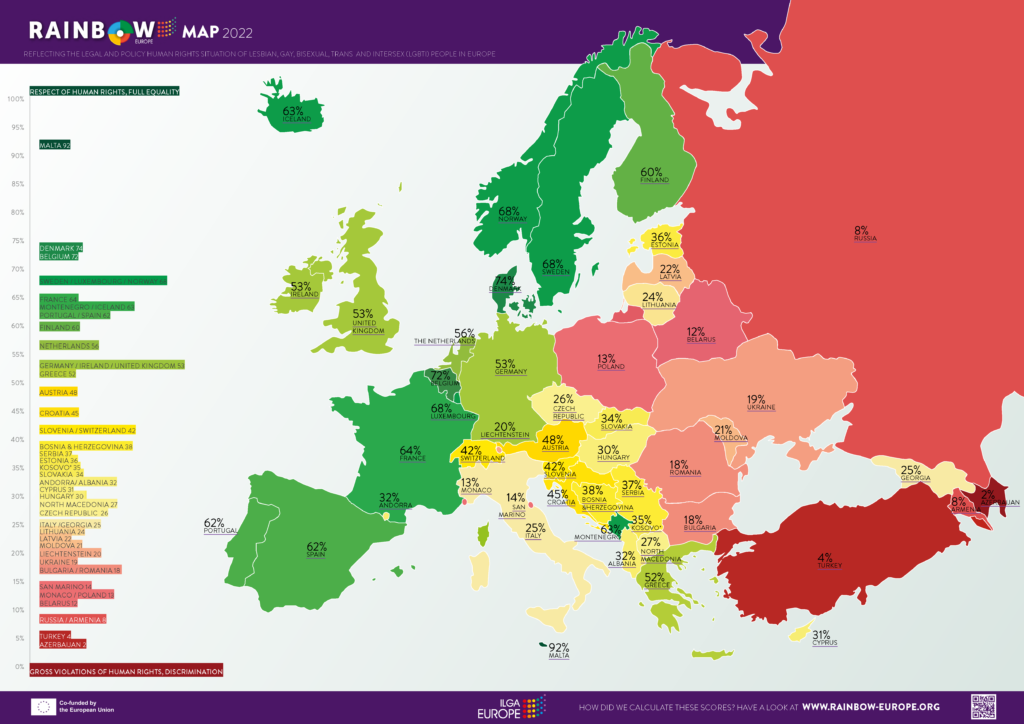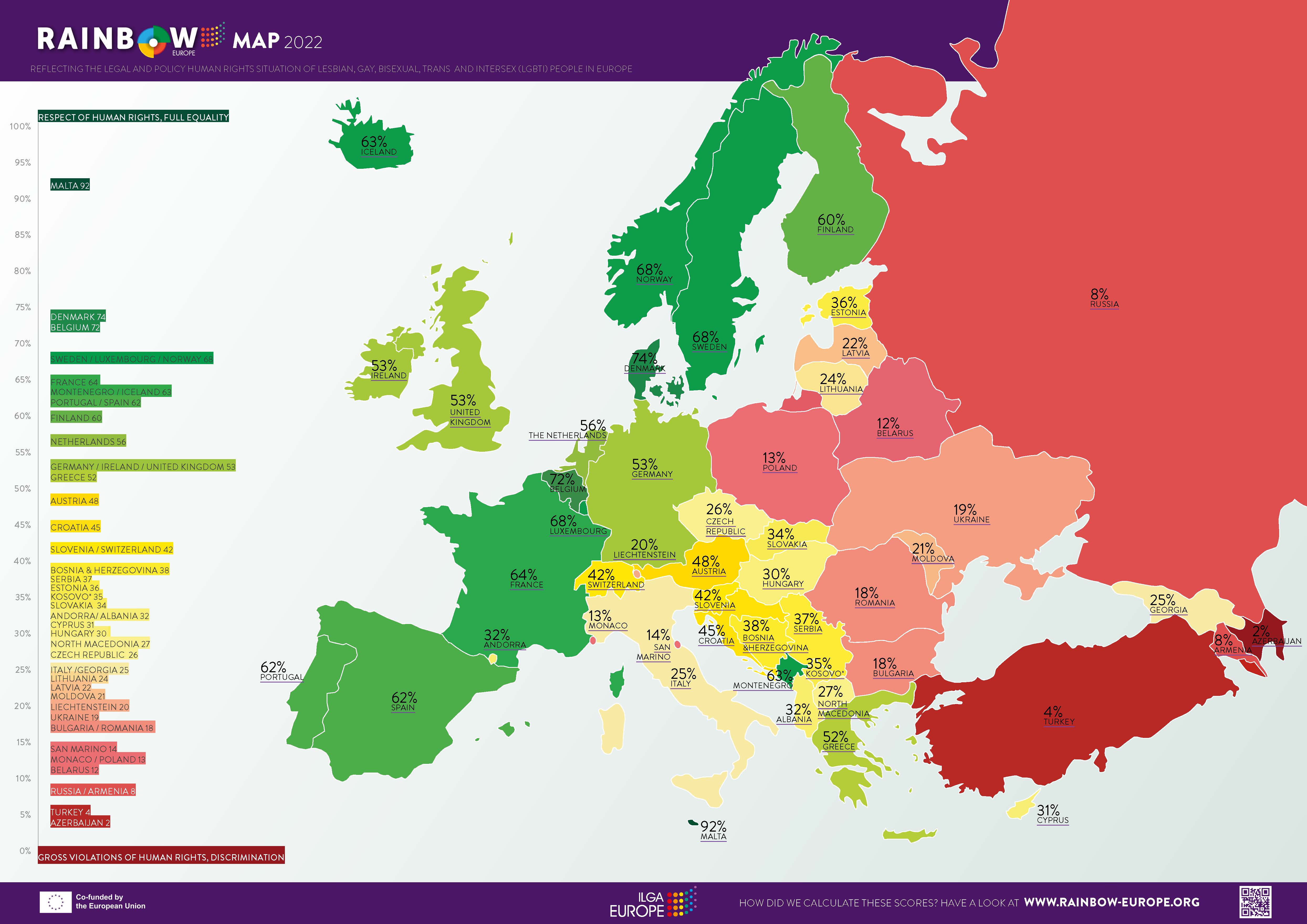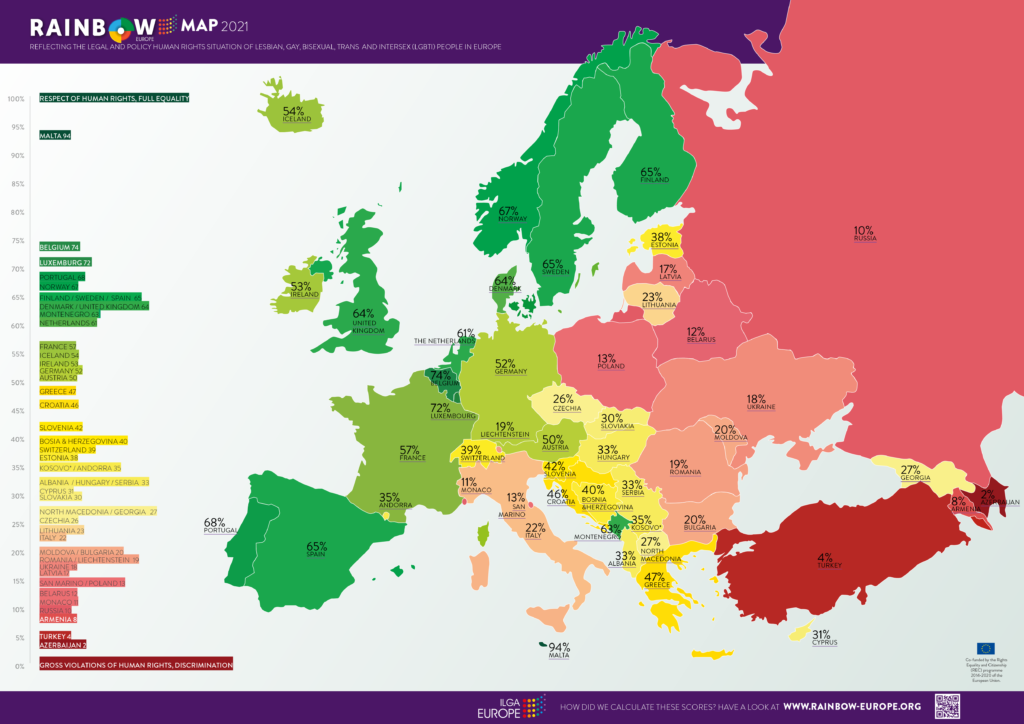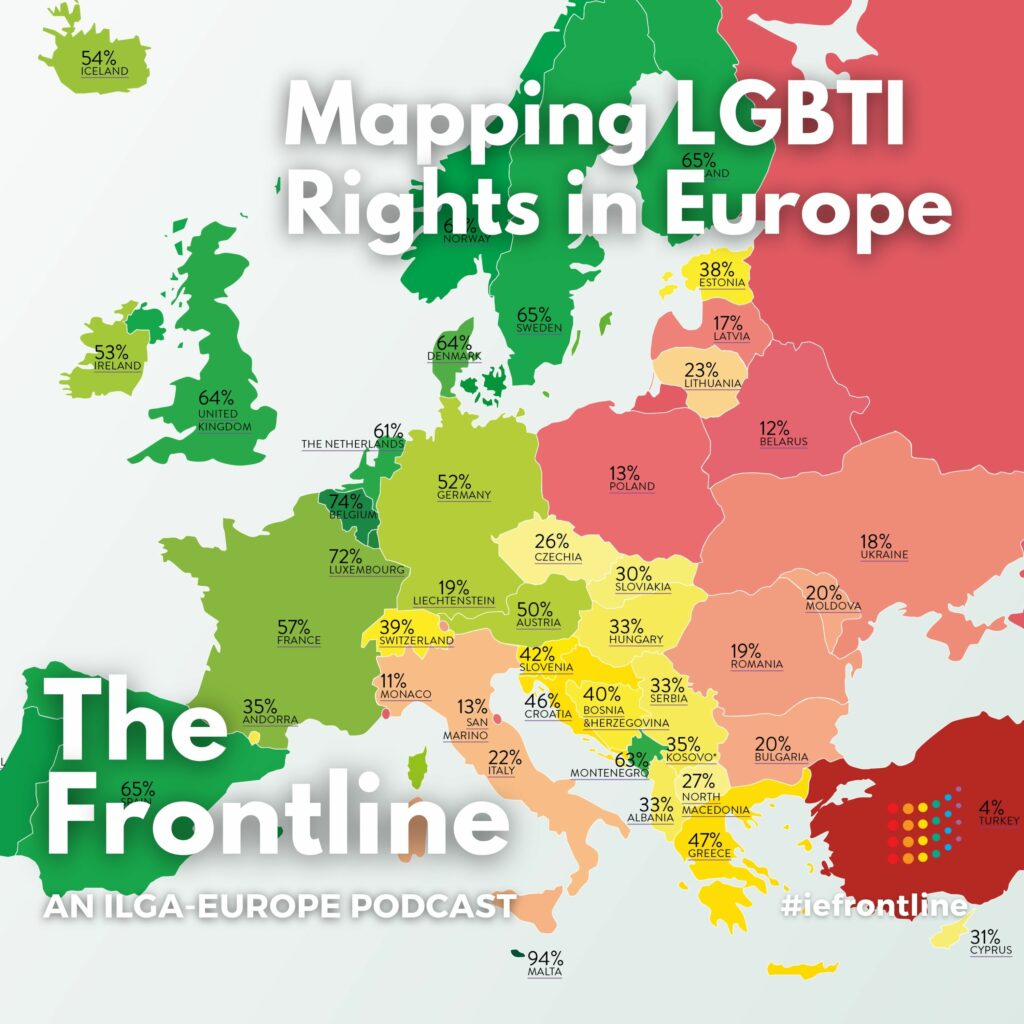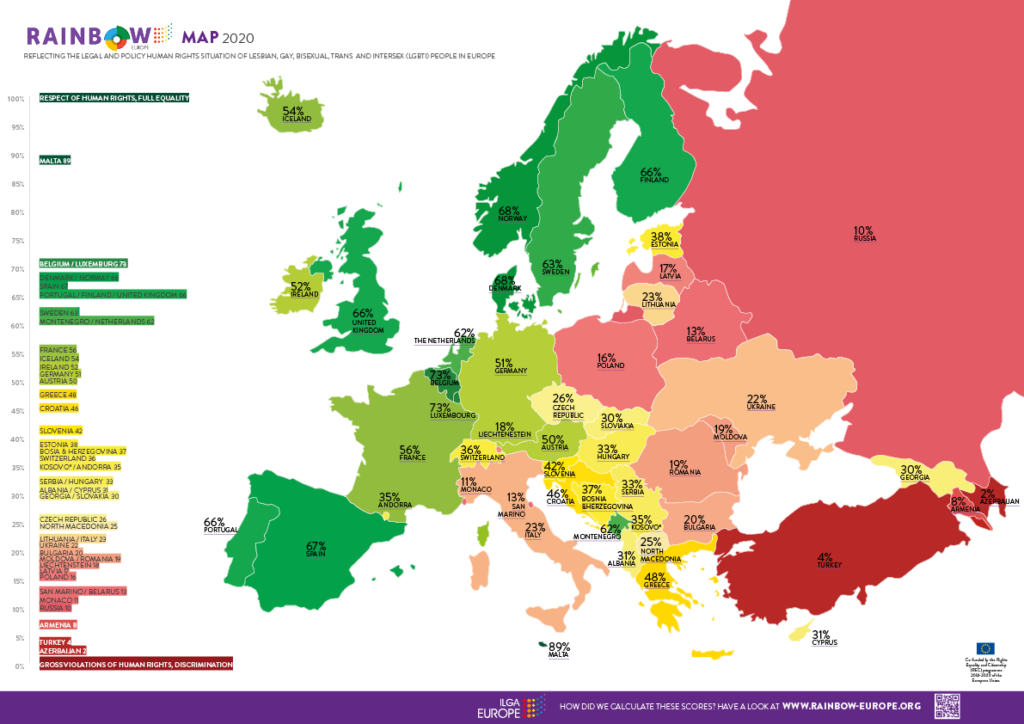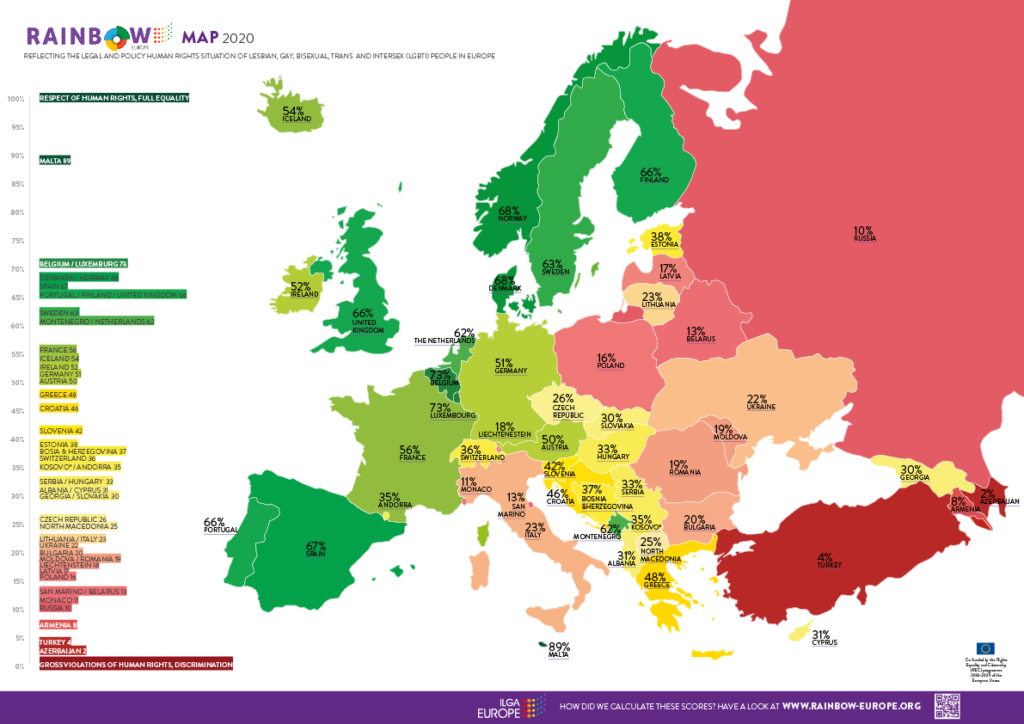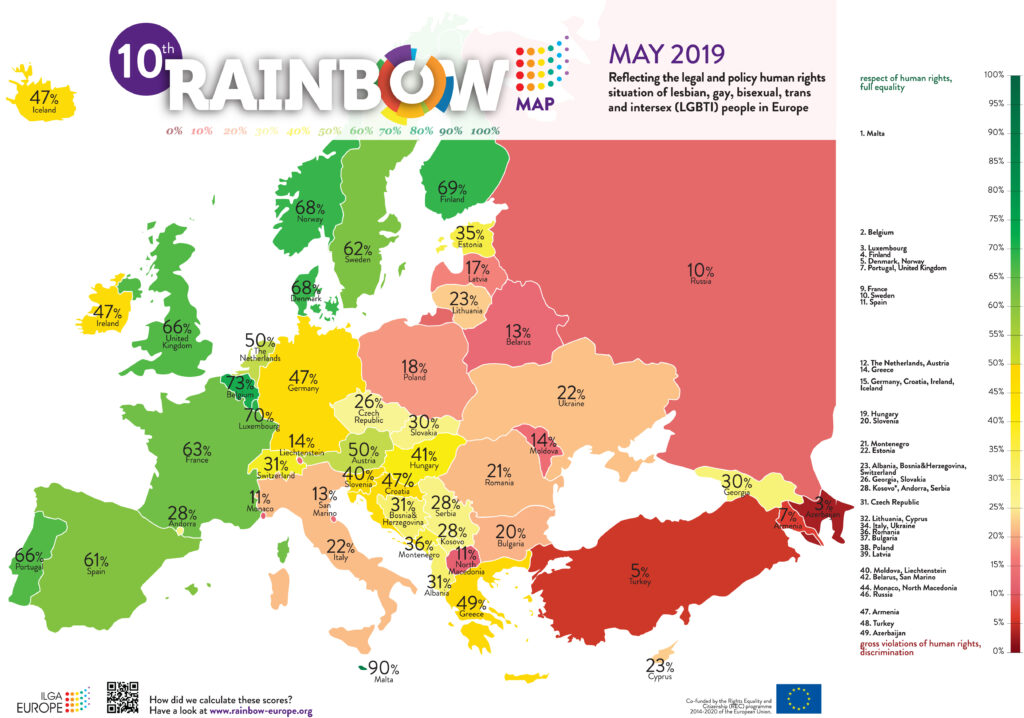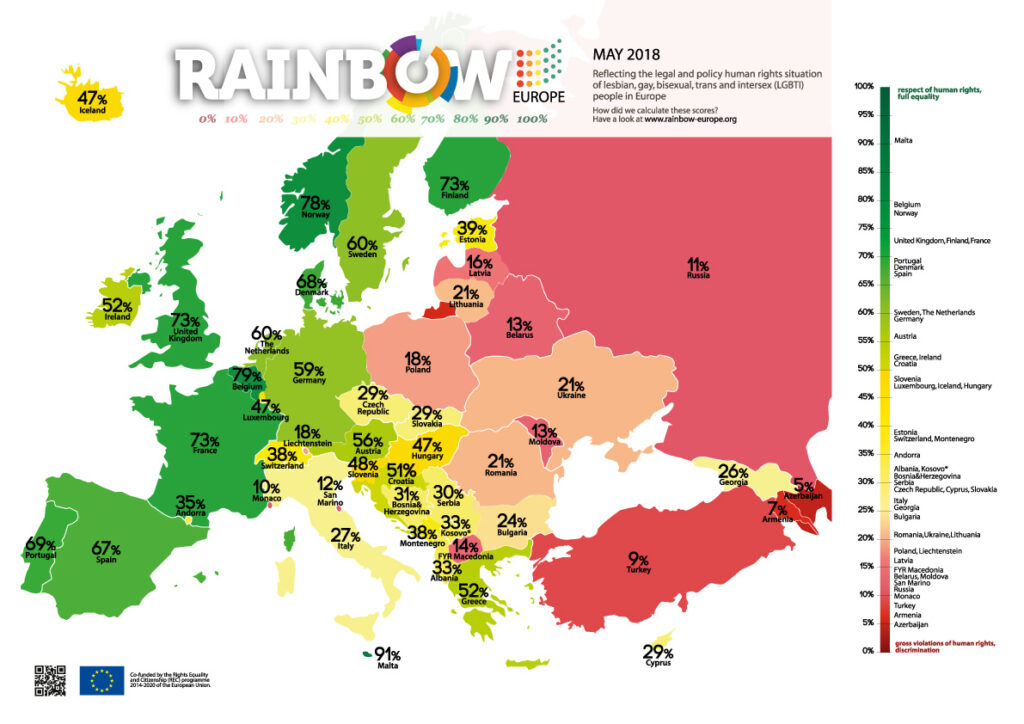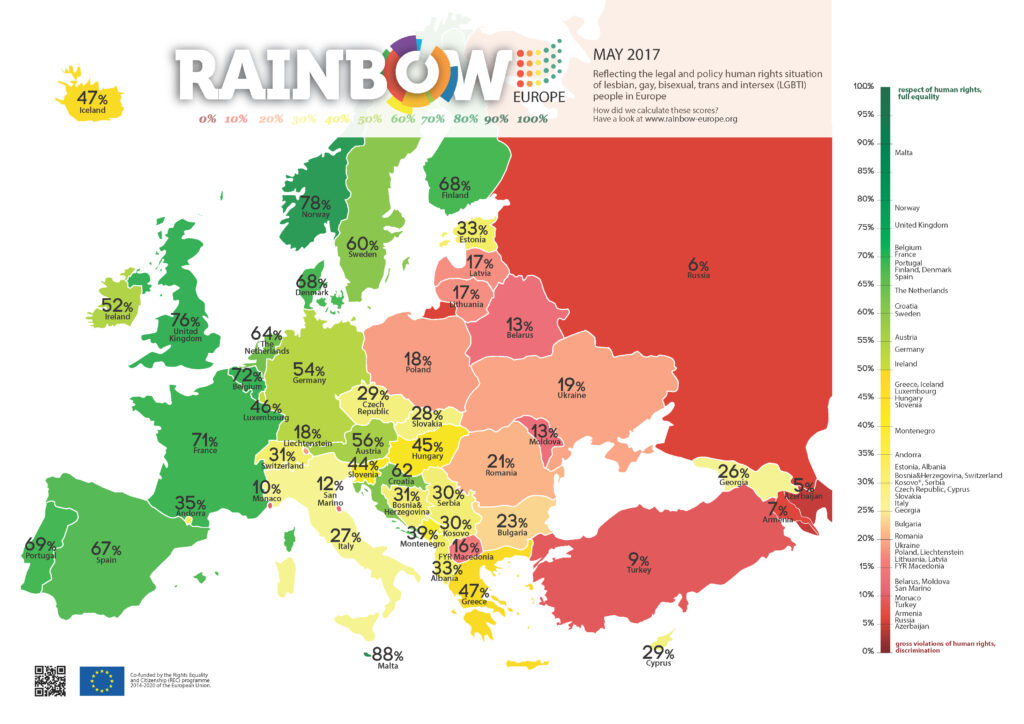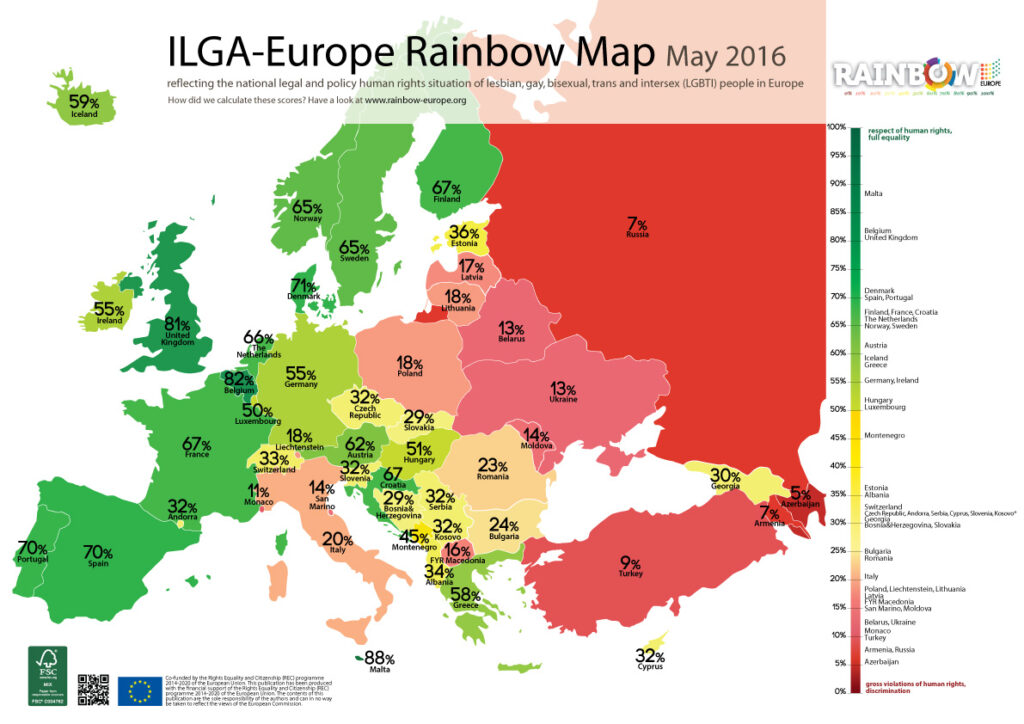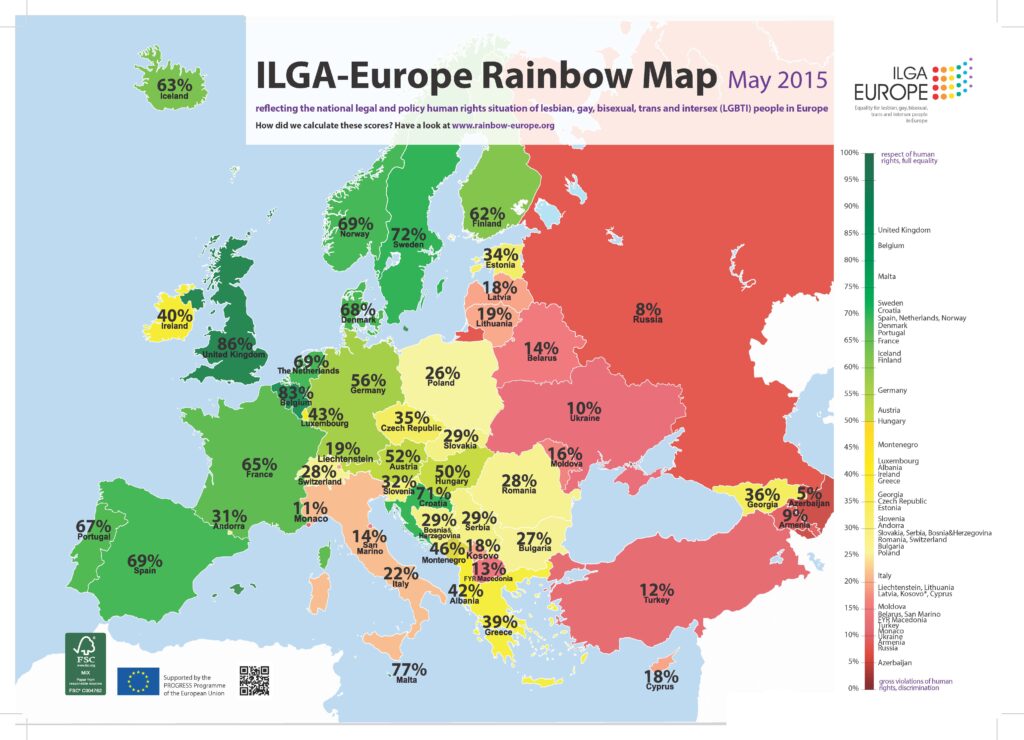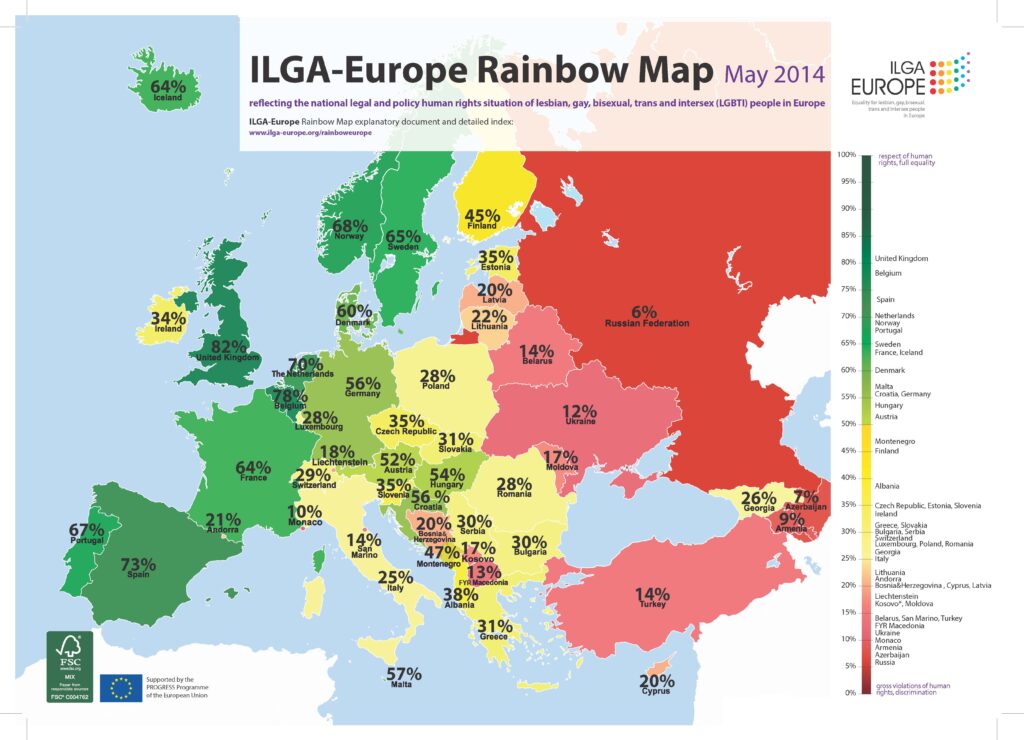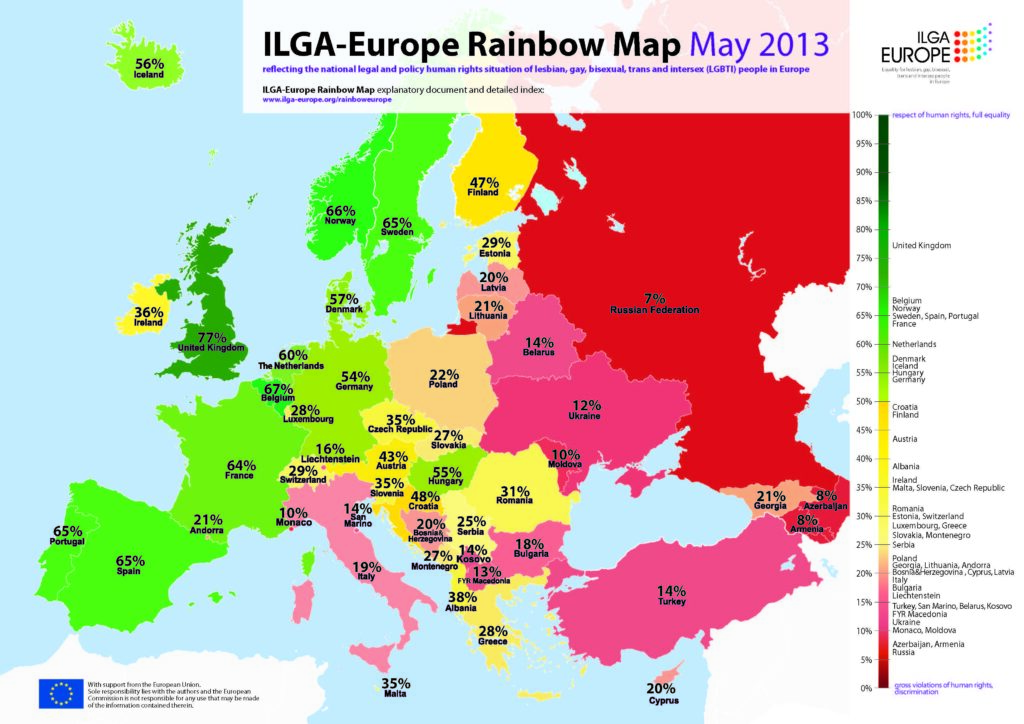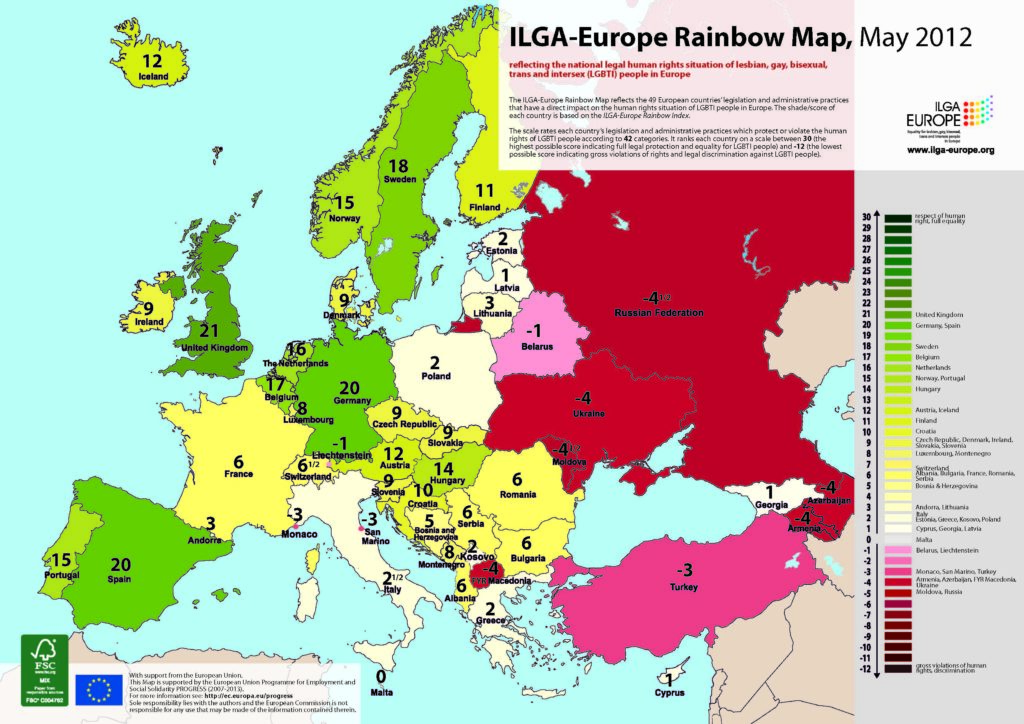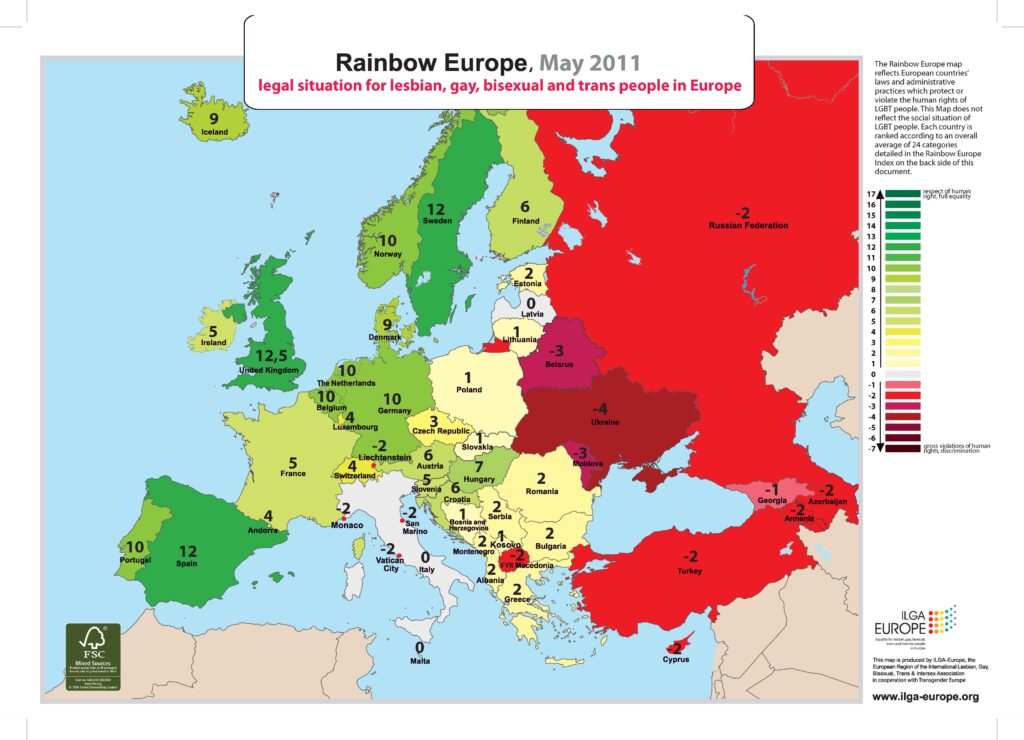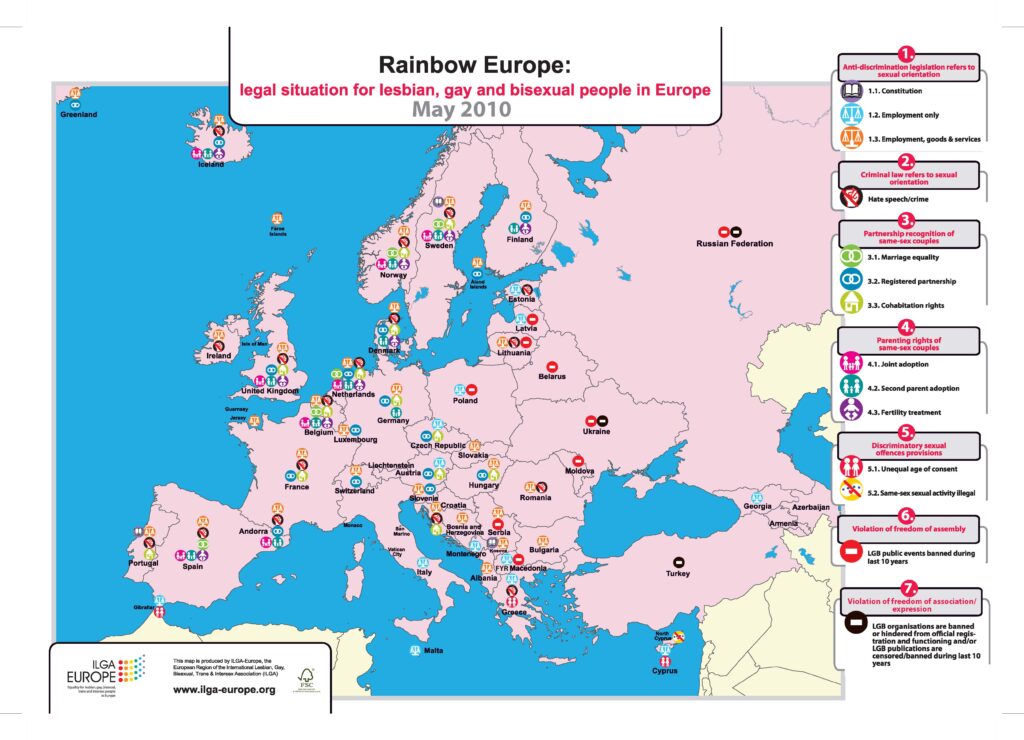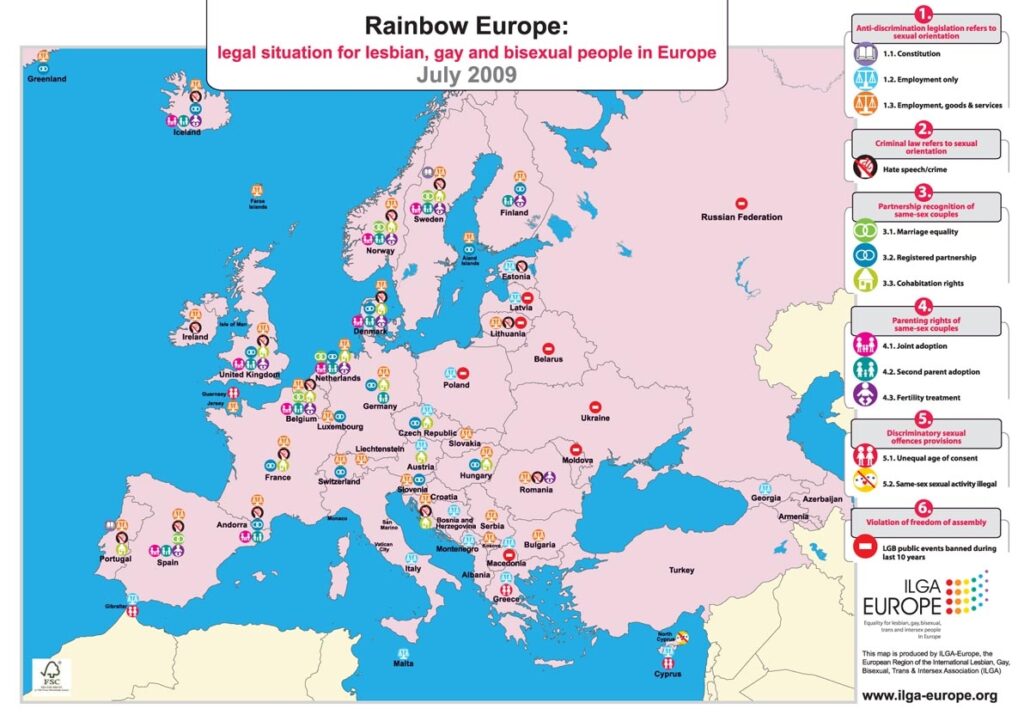Norway
Categories Score
The full bar chart stands for 100%, and is filled by the country category score. The colour display uses the traffic light palette, with Green representing a score closer to 100% and Red a score closer to 0%.
ASYLUM
This category looks into laws that expressly include SOGISC as a qualification criteria for seeking asylum. We also take into account other legislation, policies, instruction or positive measures by state actors that are related to asylum addressing the needs and rights of LGBTI asylum seekers and refugees.
Criteria Compliance Ratio
Each pie charts stands for a category and is divided in slices by criteria. When a country complies with a criteria – fully or in some regions – the slice is coloured.
Keep in mind the criteria have different weighting factor within a category; for example, the criteria Prohibition of medical intervention without informed consent (intersex) stands for half (2.5%) of the INTERSEX BODILY INTEGRITY category weighting factor (5%). Meaning that even if a country can only comply with this specific criteria within the category (1/4 total criteria) the category scores 50%.
More information on the categories and criteria weighting factors here.
Category & Criteria Table
The table lists detailed information and insights on legislation supporting each criterion status. Please use the filters for in-depth analysis.
n/a = not applicable, meaning the criteria didn’t exist in the previous Rainbow Map edition (PROGRESSION column)
- Complies
- Applicable in some regions only
- Does not Comply
RECOMMENDATIONS
In order to improve the legal and policy situation of LGBTI people in Norway, ILGA-Europe recommend:
- Ensuring that the legal gender recognition legal framework and procedures include a non-binary or third gender option.
- Ensuring that trans and intersex people can access decentralised trans and intersexspecific healthcare services in all territories of the country.
Annual Review of Norway
In our Annual Review of the Human Rights Situation of LGBTI People in Europe and Central Asia, we examine the advances made and provide concrete examples of on-the-ground situations at national level country-by-country in the 12 months from January to December 2024.
Read our Annual Review of Norway below for more details and stories behind the Rainbow Map. You can also download the Annual Review chapter (.pdf) covering Norway.
-
In November, a drag bingo event organised at the Inferno Metal Festival sparked a wave of incitement and online threats.
-
In May, the police published its annual report on hate crimes. The number of reported crimes continues to rise, being 18% higher in 2023 compared to the year before. The largest increase percentage-wise is crimes motivated by sexual orientation, gender identity, gender expression and antisemitism.
Zaniar Matapour was found guilty of aggravated terrorism by the Oslo District Court for his role in the mass shooting during Oslo Pride on June 25, 2022. Matapour was sentenced to 30
years in prison, the strictest penalty under Norwegian law. State prosecutor Aud Kinsarvik Gravås expressed satisfaction with the court’s decision in the case. Gravås highlighted that the court’s ruling aligns with the prosecution’s recommendations, which sought to fully understand and address the events surrounding the attack. Matapour has appealed the court decision. Not long after, the Borgarting Court of Appeal rejected Arfan Bhatti’s appeal against further detention in connection with the same terrorist shooting. Bhatti, who has been in detention since May 4, with both a letter and visitation ban, had previously appealed the extension of his detention. The Court of Appeal ruled that there was a risk of Bhatti evading justice and a potential for evidence to be lost, which justified his continued detention.
In the beginning of August, two people were subjected to a knife attack by a group of youths, which the police are investigating as a hate crime.
-
In April, regional professional directors representing the Ministry of Health and Care classified trans-specific healthcare for individuals under 18 as experimental based on recommendations from the Norwegian Healthcare Investigation Board. However, this decision has yet to be implemented, as the specialised team at Oslo University Hospital is still working on practical guidelines for its application. This classification stands in stark contrast to international standards, such as those outlined in the World Health Organisation’s ICD-11 diagnostic manual and the World Professional Association for Transgender Health’s Standards of Care 8.
-
A report published by Verian in June highlighted that over half of Norway’s population over the age of 15 have experienced some form of sexual harassment in the past year. The report identified young people, queer people, and women with minority backgrounds as the most vulnerable groups.
A survey by Verian, conducted for the Norwegian Institute for Human Rights (NIM), showed that four out of ten Norwegians have witnessed incitement and hate speech against queer individuals in the past year.
A survey conducted by the Norwegian Association of Journalists revealed concerning statistics about harassment and threats faced by journalists from marginalised groups. The survey noted that LGBTI journalists reported the highest rates of sexual harassment.
A government-commissioned report on people’s experiences with employment in State bodies, found that trans people experience barriers while finding and maintaining employment. The report proposed a number of different actions to combat these difficulties, among which the promotion of gender- neutral changing rooms/toilets/uniforms, the establishment of guarantees for the correct use of personal pronouns, and the promotion of competency-building courses for staff.
-
In November, a proposal introduced by members of the Christian Democratic Party, Representative Proposal 156 S, sought to remove teaching about gender identity in schools. The proposal was met with significant opposition, including a detailed consultation response from FRI, the Norwegian association for gender and sexual diversity, which emphasised the importance of accurate and respectful education on gender identity to prevent bullying and support queer youth. Ultimately, the Storting rejected the proposal, with 86 representatives voting against it and 13 in favour.
-
In June, the Equality and Anti-discrimination Ombudsperson has published a summary of previous discrimination cases regarding gender identity and gender expression, to help with potential future cases and also function as a practical guide.
In September, the Lyngdal municipality banned the rainbow flag on its premises.
-
Across Norway, four new regional centres for trans-specific care opened, offering therapy and access to prosthetics but not medical or surgical services, as that is still under the control of the national treatment centre in Oslo, contrary to the guidelines. The last to open was the centre in Bergen on February 15.
-
The Ministry of Culture and Equality commissioned the Directorate for Children, Youth and Families to develop a national guide on gender diversity to foster greater understanding and recognition among public service providers. Scheduled for release in spring 2025, this guide aims to improve conditions for non- binary people and builds on the recommendations in the 2023 report on a potential third legal gender category. The measures proposed in the guide include the removal of the gender indication numbers from citizens’ social security numbers.
In the revised national budget, the Socialist Left Party secured funding for a support group following the terror attack during Oslo Pride on June 25, 2022. For 2025, the party also secured funding for two national programs: Pink Competency Child Welfare, aimed at employees in the child welfare system, and Pink Competency Justice, focused on police employees with an emphasis on hate crimes.
-
In April, following the submission of a report to the government detailing Norwegian support for the introduction of a third legal gender, the Minister of Culture and Equality issued a statement indicating the issue may not be addressed until 2032 due to upcoming changes in the personal identification system.
The full Annual Review for 2025 is available here.


